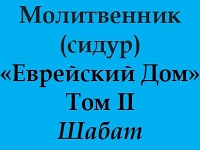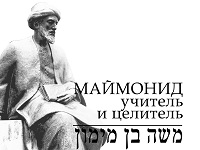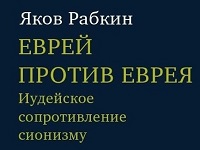English
ABOUT THE PROBLEM
Russia ranks one of the first in the number of people serving their sentences – there are about 800.000 men and women behind bars (about 500 prisoners are Jews). Each year the Russian society receives more than 250,000 released prisoners (about 100 prisoners-Jews). All of them face many difficulties in a “free world”.
As a rule, only one fifth of the citizens, released from institutions of confinement, have somewhere to go to. The rest get out of prison with a miserable sum of money (on release the state is due to pay the prisoner the amount of about $25), and often without any identity cards. Usually neither relatives, nor friends or former colleagues wish to deal with them, hence the released prisoners, as a rule, have nobody to turn to for material or psychological support. On receiving the long expected freedom the former prisoner is literally accepted nowhere… At present the Russian society can offer him two ways for his further life development:
Vagrancy;
Crime.
According to the statistics, more than 50% of former prisoners become recidivists. As a result, correctional institutions only isolate the convicted from the society temporarily, but they do not improve him at all and, naturally, do not bring him back to normal life. On the contrary, these institutions, using the fact that they are closed away from the society, apply in their work with the prisoners hardly always human methods. According to the statistics of pardon, it is known that the second offense among the pardoned comprises 2-3%, and among the released after serving the full sentence term it grows up to 50%. It means that a considerable part of the prisoners do not pose hazards to the society, but the hazards are located within the correctional institutions themselves.
Today there are different non-commercial (religious, charitable) organizations active on the territory of Russia that spend substantial means for material and spiritual support of many thousands of people, serving their sentences in prisons and labor settlements. But the mission of such organizations is limited by just the period of prisoner serving his sentence in correctional institution. Unfortunately, at present there are very few institutions in Russia that deal with social and psychological adaptation of released prisoners. All such organizations cover only 2% ex-prisoners. Knowing for sure that almost 50% of released prisoners will return to the criminal past again, one comes to the conclusion that it is rather worthwhile to create the mechanism of social and psychological support and adaptation of already released or about to be released in the nearest future prisoners on the territory of the Russian Federation.
OUR PRINCIPLES
We believe in man, in dominance of good in him, in his improvement…
OUR PARTNERS AND FRIENDS
UJA Federation of New York, JDC’s Moscow office, Russian Jewish Congress (RJC), Dutch Jewish Humanitarian Fund, Congress of Jewish Religious Organizations and Communities in Russia, Charities Aid Foundation (CAF-Russia), Moscow’s Government, Chief Rabbi of Russia, senior statesmen and public figures (members of the Public Chamber, Adviser to the Prosecutor of Russia), outstanding athletes (winner of Israel's bodybuilding), lawyers (members of the Russian and Israeli Bar Associations), scientists and journalists of Russian and international publications, as well as Russian and Israeli businessmen and philanthropists, variety of charitable, human rights, religious and other NGO’s.
OUR BACKGROUND
Our organization – Moscow Welfare Committee Fund “EBK” (FEBK) — offers the released prisoners a third (innovative) way of their further way life – social and psychological adaptation and rehabilitation. The first steps towards social and psychological adaptation of released prisoners have been made in 2008-10 when the several rehabilitation seminars in Russia for released Jewish prisoners took place. A group of tens prisoners released from institutions of confinement, convicted for different crimes, took part in the seminars. As specialist the following people have been invited to the seminars: the chief rabbi of Russia, professional lecturers in Jewish ethics, psychologists, a lawyers, a representative of placement service, prize-winner of Israel and Europe in body-building, leaders of public and charitable organizations of Russia, as well as journalists. During the seminars the invited specialists worked with the groups in the following directions:
cultivating moral and ethic values through studying Torah and Jewish tradition;
psychological adaptation through carrying out special psychological tests and trainings;
law consultations on everyday problems facing all the released prisoners;
search of relatives on the territory of Russia and outside (Israel, USA, Germany);
assistance in mastering a profession with good job opportunities;
assistance in employment;
social adaptation within meetings with leaders of public and charitable organizations;
within the health-improving program of the seminar consultations on healthy life-style and nourishment were carried out;
as part the entertainment program an Israeli film «Ushpizin» was demonstrated and a concert program of Jewish choir with singing Jewish songs was organized.
Analysis of the experience gained at the seminars allowed to develop a unique model of social and psychological adaptation as applied to such a specific target audience as released prisoners.
These events have been widely covered by the Jewish Mass Media on the territory of the Russian Federation, which led to immediate results: three most important Jewish organizations of Russia responded to the idea of creating rehabilitation center. At present active work is being done over the second stage of rehabilitation project realization – creation of standing rehabilitation center. The experience of social and psychological adaptation of released prisoners, gained during the seminars, would underlie the future model of standing rehabilitation center, designed for dozens of people, where the released prisoners would be able to receive everything necessary for the spiritual advancement and social adaptation, including lodging and employment.
THEATRE «FREE DEBUT»
OUR FUTURE
Our organization does not plan to restrict solely to one nation (Jewish) target group that counts up to around 500 prisoners, 300 ex-prisoners-Jews and hundreds members of their families. We are persuaded that the activities and experience of the center on rehabilitation of released Jew prisoners would be widely covered in Mass Media. It would attract attention of general public, Russian as well as foreign, to the unsolved problems of all the prisoners in Russia, independent of their nationality or religion. In other words, the gained experience of work with one nation group could be widely projected on other public, charity and state organizations of the Russian Federation.
Naturally, in order to carry out such an ambitious coming project tremendous material, administrative and staff resources are required, that cannot be drawn without the support at state and national level. Perhaps, decades would pass before hundreds of centers on social and psychological adaptation of released prisoners would take effect.
We are persuaded that this humane activity would inspire the generations to come, as it is said in the treatise «Avot» – «Fathers» II, 21: «...It is not up to you to complete the [whole] work, but neither are you at liberty to desist from it…»
THE PROGRAMS OF SOCIAL ADAPTATION AND REHABILITATION:
Psychologist assistance (trainings, consultations);
Participation in theatrical studio «Free Debut»;
Rabbinical supervision (including studying in yeshiva);
Legal assistance (restoration of documents, consultations);
Assistance in mastering a profession with good job opportunities;
Employment rehabilitation: placement and support during the first stages of employment in cooperation with «friendly employers».
FOR FULL ENGLISH VERSION — CLICK HERE
CONTACT INFORMATION
Postal address: Russian Federation, 115191, Moscow, 4-th Roschinsky Proezd, 19/2
E-mail: info@shalom-zk.ru
Tel./fax: +7-499-760-75-50
Gleb Kokorin — Head of the FEBK
Arkady Baranovsky – Project manager
Danielle Antebi — Project co-manager, head of the overseas department





















